Biomedical authors' awareness of publication ethics: an international survey
- PMID: 30478105
- PMCID: PMC6254423
- DOI: 10.1136/bmjopen-2017-021282
Biomedical authors' awareness of publication ethics: an international survey
Abstract
Objective: The extent to which biomedical authors have received training in publication ethics, and their attitudes and opinions about the ethical aspects of specific behaviours, have been understudied. We sought to characterise the knowledge and attitudes of biomedical authors about common issues in publication ethics.
Design: Cross-sectional online survey.
Setting and participants: Corresponding authors of research submissions to 20 journals.
Main outcome measures: Perceived level of unethical behaviour (rated 0 to 10) presented in five vignettes containing key variables that were experimentally manipulated on entry to the survey and perceived level of knowledge of seven ethical topics related to publishing (prior publication, author omission, self-plagiarism, honorary authorship, conflicts of interest, image manipulation and plagiarism).
Results: 4043/10 582 (38%) researchers responded. Respondents worked in 100 countries and reported varying levels of publishing experience. 67% (n=2700) had received some publication ethics training from a mentor, 41% (n=1677) a partial course, 28% (n=1130) a full course and 55% (n=2206) an online course; only a small proportion rated training received as excellent. There was a full range (0 to 10 points) in ratings of the extent of unethical behaviour within each vignette, illustrating a broad range of opinion about the ethical acceptability of the behaviours evaluated, but these opinions were little altered by the context in which it occurred. Participants reported substantial variability in their perceived knowledge of seven publication ethics topics; one-third perceived their knowledge to be less than 'some knowledge' for the sum of the seven ethical topics and only 9% perceived 'substantial knowledge' of all topics.
Conclusions: We found a large degree of variability in espoused training and perceived knowledge, and variability in views about how ethical or unethical scenarios were. Ethical standards need to be better articulated and taught to improve consistency of training across institutions and countries.
Keywords: ethics (see medical ethics); medical ethics.
© Author(s) (or their employer(s)) 2018. Re-use permitted under CC BY-NC. No commercial re-use. See rights and permissions. Published by BMJ.
Conflict of interest statement
Competing interests: SS is a full-time employee of the BMJ Publishing Group and has access to all submission data and regularly undertakes research with its authors and reviewers. SM is a former employee of BMJ Publishing Group. EL receives salary support from The BMJ for her services as head of research. This is paid to her employing institution (the Brigham and Women’s Physician Organization). None of the authors work directly for BMJ Open or are involved in the decision-making process for articles submitted to BMJ Open. This paper was sent out for peer review in the usual way and treated in the same way as all submissions to the journal. TTH, JR and DBP have no relevant conflicts of interest.
Figures

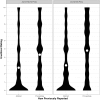
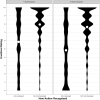
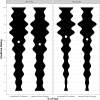
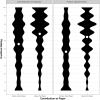
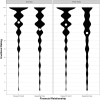
References
-
- Tijdink JK, de Rijcke S, Vinkers CH, et al. . [Publication pressure and citation stress; the influence of achievement indicators on scientific practice]. Ned Tijdschr Geneeskd 2014;158:A7147. - PubMed
-
- Liu Y, Yang Z, Fan D. Professional title promotion among clinicians: a cross-sectional survey. The Lancet 2016;388:S31 10.1016/S0140-6736(16)31958-4 - DOI
Publication types
MeSH terms
LinkOut - more resources
Full Text Sources
